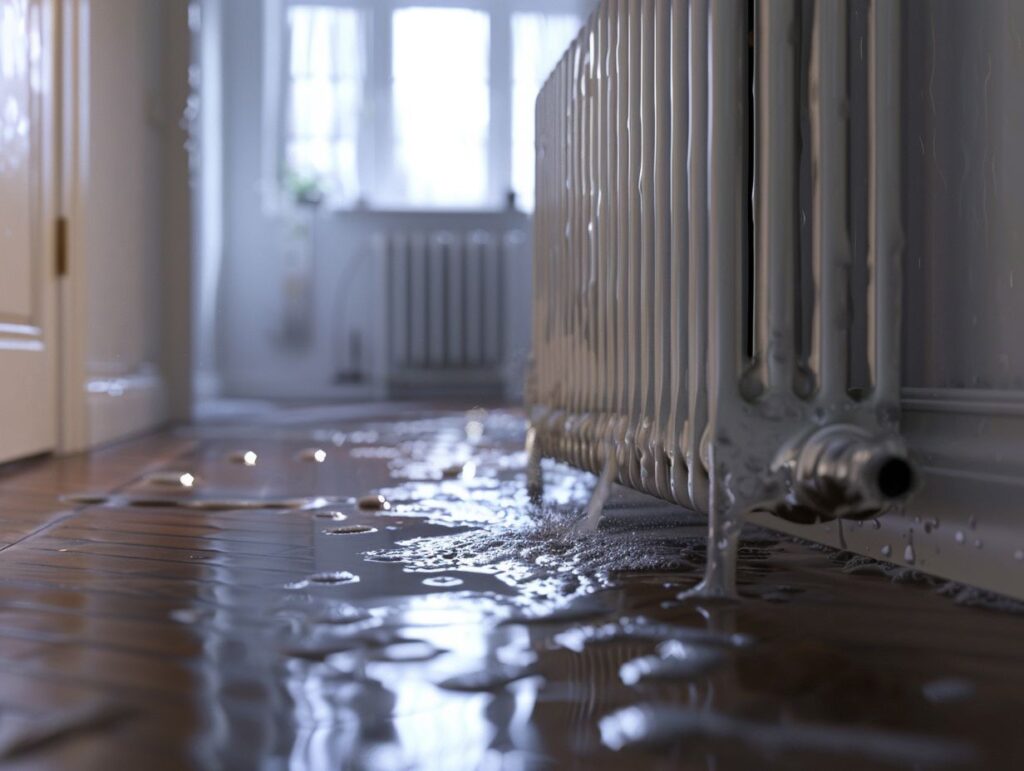Are you experiencing a leak in your hallway radiator? It is important to have an understanding of the common causes of leaks and be able to recognize the signs of a leaking radiator.
This article will cover how to identify the issue and offer do-it-yourself solutions for addressing a leaking hallway radiator. It will also delve into the appropriate times to seek assistance from a professional.
Furthermore, maintenance tips will be provided to help prevent future leaks, and the possibility of replacing old radiators will be discussed. Continue reading to gain insight into maintaining your radiator in optimal condition.
Key Takeaways:
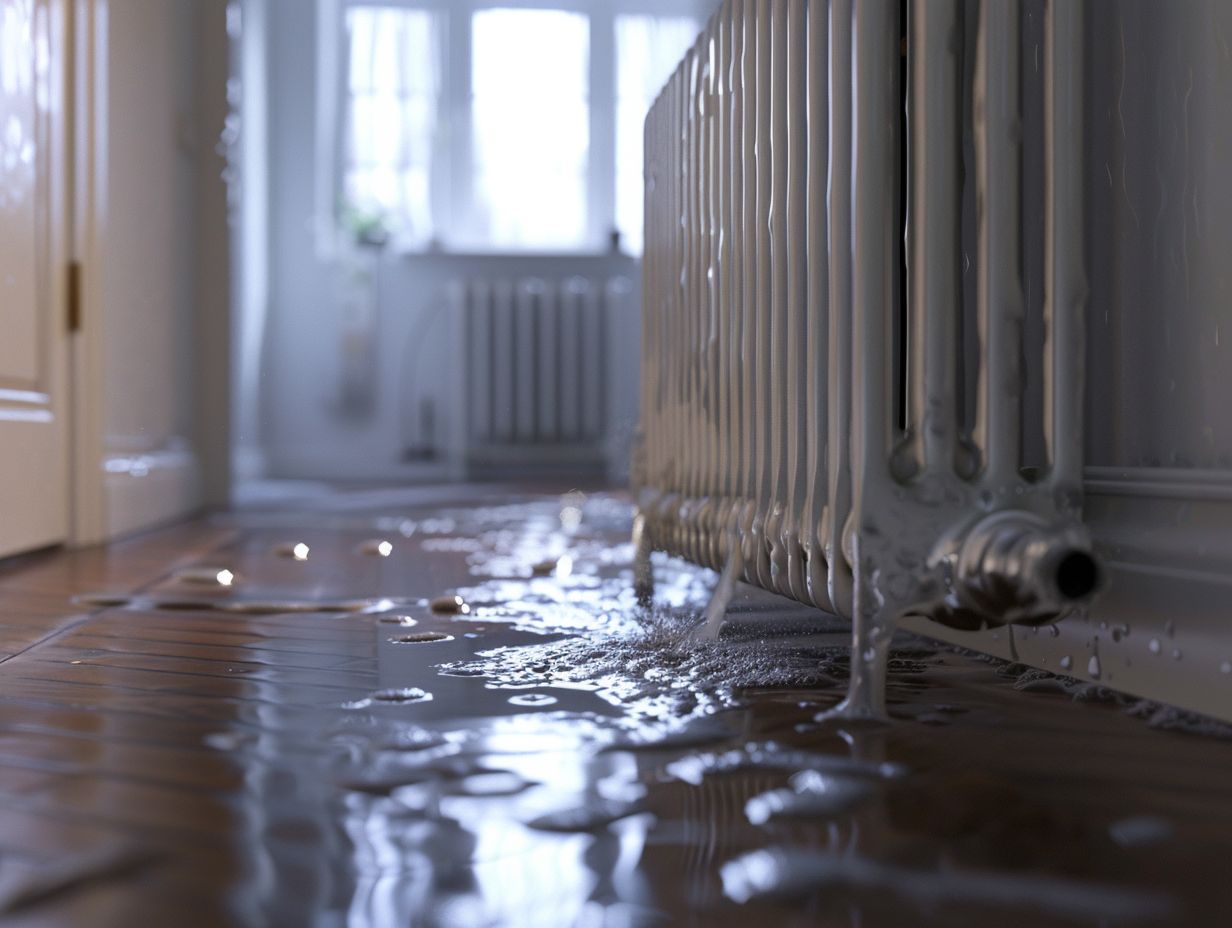
- A leaking hallway radiator can be caused by various factors such as corrosion, rust, or loose fittings. Regular maintenance and inspections can help prevent these issues.
- Signs of a leaking radiator may include puddles of water, rust stains, and a musty odor. Identifying the problem early can save you from costly repairs.
- While some leaks can be fixed with DIY solutions like tightening fittings or using sealant, it’s best to call a professional for more serious issues like a cracked radiator.
Common Causes of Leaks
Common causes of radiator leaks include issues like corrosion in the pipes, irregularities in water pressure, malfunctions in the valves, and general wear and tear over time.
Corrosion, a leading cause of radiator leaks, can develop due to various factors such as exposure to moisture, oxygen, and contaminants in the coolant. This gradual process weakens the metal surfaces of the radiator, making them more susceptible to leaks.
Fluctuations in water pressure can put excessive stress on the radiator components, leading to the formation of cracks or fissures. Valve problems, such as leaks or blockages, can disrupt the proper coolant flow, resulting in overheating and potential leaks.
The continuous wear and tear on the radiator from regular use can compound these underlying issues, eventually leading to leaks.
Signs of a Leaking Radiator
Identifying the signs of a leaking radiator is crucial for preventing water damage and ensuring the efficiency of your heating system. Common indicators to watch out for include the presence of water puddles near the radiator, signs of corrosion on its surface, and rusted pipe connections.
The initial sign of a leaking radiator is often the sight of water puddles, typically located underneath the radiator or in its vicinity.
Additionally, the presence of corrosion on the radiator’s surface may indicate potential leaks. Rust on pipe connections, particularly at joints, can also signal deterioration and potential leaks.
Neglecting these warning signs could lead to more extensive damage and higher repair costs. It is important to conduct regular inspections and take prompt action to address radiator leaks before they worsen.
Identifying the Problem
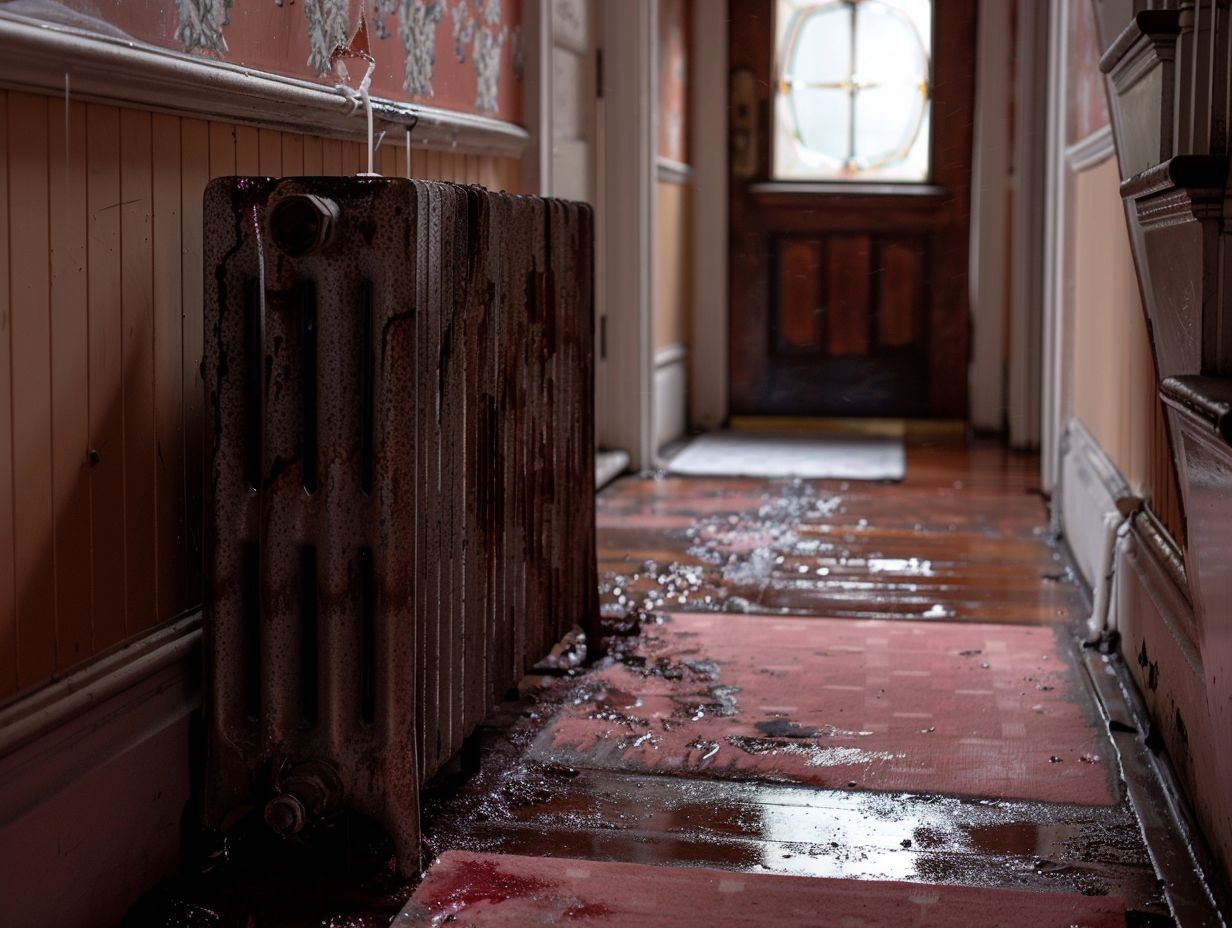
When identifying a radiator leak, you should begin by checking for water accumulation near the radiator. The presence of water puddles or dampness around the base can often indicate a leak.
Next, carefully examine the spindle for any visible leaks. Make sure to observe the connections and joints for signs of moisture or dripping water, as this can help pinpoint the source of the leak.
Finally, it is crucial to thoroughly inspect the hallway or nearby walls for any noticeable damp patches or discolouration. These signs can be indicative of water seepage from a leaking radiator.
Fixing a Leaking Hallway Radiator
When dealing with a leaking hallway radiator, you may need professional assistance from a plumber to address the problem effectively. Plumbers possess the expertise and tools necessary to accurately diagnose the source of the leak in your hallway radiator.
If the issue is related to the spindle, they can efficiently repair or replace it to stop the leakage. Additionally, applying a specialised leak sealer can provide a temporary solution until a permanent fix is implemented.
Regularly inspecting your radiator for any signs of leaks is crucial. Promptly addressing any leaks can help prevent water damage and potential health hazards. Seeking professional help for radiator maintenance and repairs is essential to ensure a safe and efficient heating system in your home.
DIY Solutions
If you are considering DIY solutions for your hallway radiator, it is advisable to use a chemical inhibitor in the system or inspect the bottom and pipe connections for potential leaks.
Chemical inhibitors, available at most hardware shops, are effective in preventing corrosion that could cause leaks in your radiator system.
To apply the inhibitor, start by turning off the heating and allowing the radiator to cool, following the manufacturer’s instructions carefully.
Examine the bottom of the radiator for any signs of pooling water or rust, as these may indicate a leak. Additionally, check the pipe connections for loose fittings or signs of moisture. Tighten or replace any components that are problematic to prevent further leakage.
When to Call a Professional?
If you notice severe rusting, significant leaks, or require replacement parts that are not commonly available at B&Q or plumbers merchants, it is recommended that you seek the assistance of a professional plumber.
When dealing with radiator leaks, some issues may be too complex for DIY fixes. Extensive damage to your radiator could indicate a more serious problem that requires professional expertise.
Serious rusting can lead to significant deterioration in the radiator, resulting in leaks that cannot be easily patched up. If you are unable to find the necessary replacement parts at local hardware stores, it is advisable to contact a plumbing professional who may have access to specialised suppliers or solutions.
Preventing Future Leaks
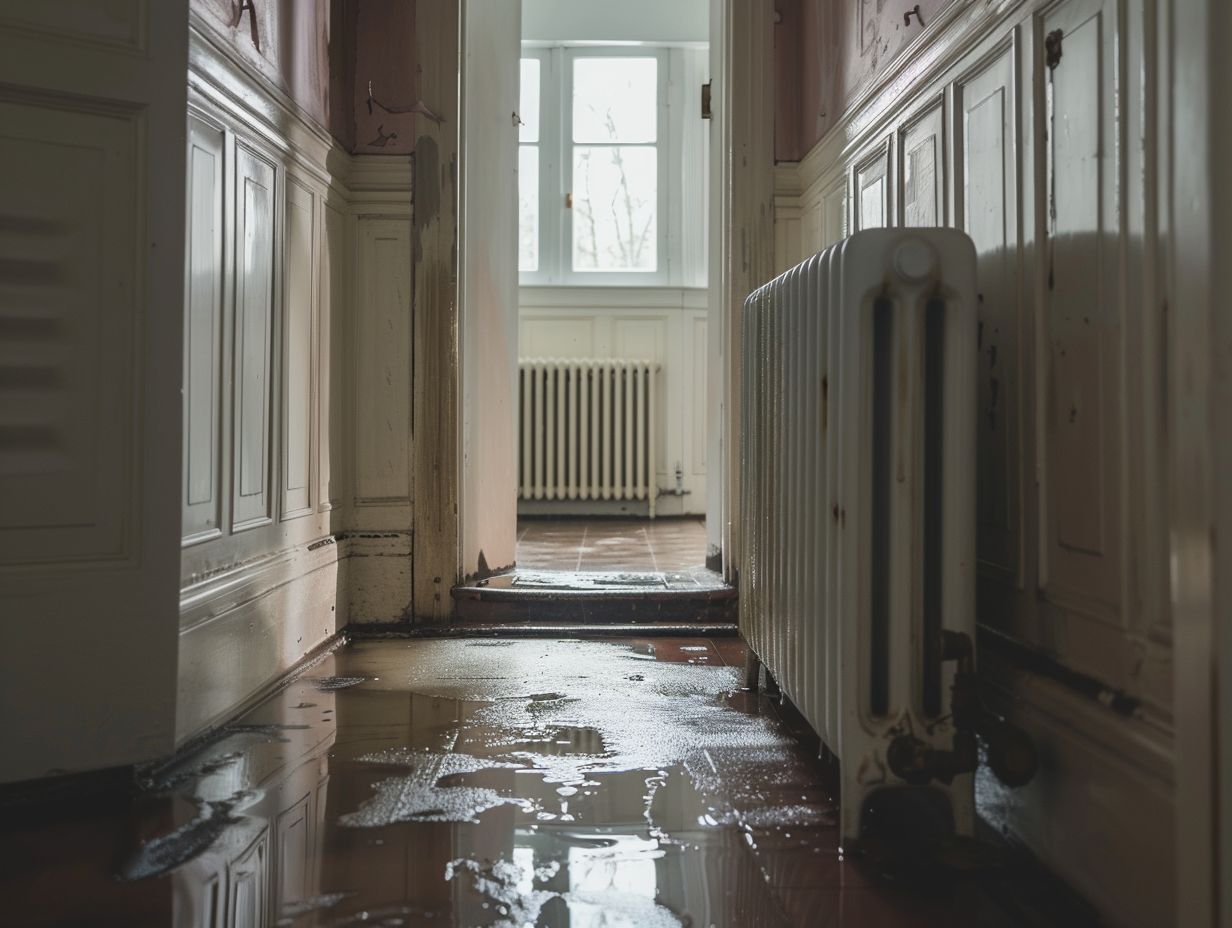
Preventing future radiator leaks involves conducting regular maintenance checks, utilising corrosion-resistant materials, and promptly addressing any rust issues to ensure the longevity and efficiency of your heating system.
Regular maintenance checks should encompass inspecting all radiator components, such as hoses and seals, for signs of wear and tear.
Monitoring coolant levels and temperature is essential to prevent overheating. Additionally, incorporating a rust inhibitor in the coolant can help reduce corrosion and prolong the radiator’s lifespan.
Proper ventilation around the radiator is also crucial to prevent overheating and potential damage. By adhering to these preventive measures, you can proactively protect your radiator from leaks and uphold a dependable heating system.
Maintenance Tips
To maintain your steel panel radiator efficiently, it is essential to perform routine maintenance tasks. This includes bleeding the system regularly, checking for any potential leaks, and ensuring proper insulation to prevent heat loss.
To maintain efficient heat distribution within the system, it is crucial to properly bleed the system by releasing any trapped air. Additionally, monitoring the radiator for any signs of leaks, such as water pooling or staining around the unit, is important to address any issues promptly.
Properly insulating your steel panel radiator can significantly improve its overall efficiency by reducing heat loss. One effective method is to add insulation material behind the radiator to ensure that heat is emitted into the room rather than escaping into the walls.
By following these maintenance procedures diligently, you can ensure that your steel panel radiator functions effectively and efficiently for an extended period of time.
Replacing Old Radiators
When you are considering replacing old radiators, it is essential to ensure their compatibility with your boiler system. Opt for durable materials like grey plastic pipes to enhance longevity and corrosion resistance. Seeking professional advice for the installation process is recommended to maintain optimal heating efficiency.
Checking the compatibility of the new radiators with your existing boiler setup is crucial to avoid operational issues. Opting for high-quality materials such as grey plastic pipes can provide longevity and resistance to corrosion.
Seeking professional consultation ensures the installation process is done correctly, preventing leaks or malfunctions that could affect the heating efficiency of your home. By following these steps, you can seamlessly integrate new radiators into your heating system for maximum comfort and energy savings.
Frequently Asked Questions
Why Is My Hallway Radiator Leaking?
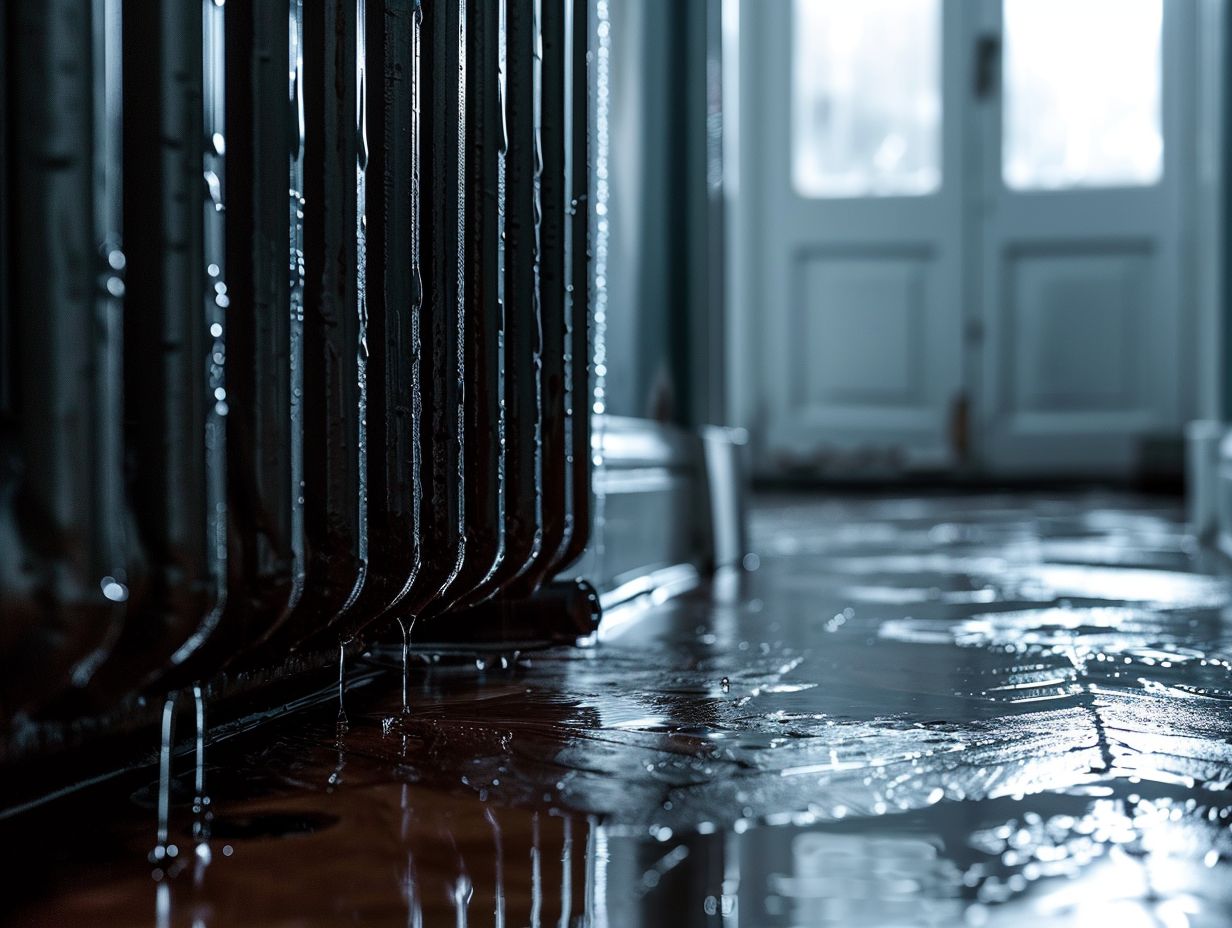
There could be several reasons why your hallway radiator is leaking, such as a damaged valve, a crack in the radiator, or a problem with the pipes. It is important to identify the cause to properly fix the issue.
How can I tell if my hallway radiator is leaking?
If you notice water pooling around your radiator or if you see visible water drips, it is a sign that your radiator is leaking. You may also notice a decrease in heat output from the radiator.
Can I fix a leaking hallway radiator myself?
While it is possible to fix a leaking hallway radiator yourself, it is not recommended unless you have experience with plumbing and radiators. It is best to hire a professional to ensure the issue is properly resolved.
How much does it cost to fix a leaking hallway radiator?
The cost of fixing a leaking hallway radiator will vary depending on the cause of the leak and the extent of the damage. On average, it can cost anywhere from $150 to $500 for repairs. It is best to get a quote from a professional for an accurate estimate.
Is a leaking hallway radiator dangerous?
A leaking hallway radiator can cause water damage to your home and may lead to a potential fire hazard if the leaking water comes into contact with electrical components. It is important to address the issue promptly to avoid any safety hazards.
How can I prevent my hallway radiator from leaking?
To prevent your hallway radiator from leaking, it is important to regularly check and maintain it. Make sure to bleed your radiators to release any trapped air and check for any visible damage. It is also recommended to have your radiators inspected by a professional annually.

